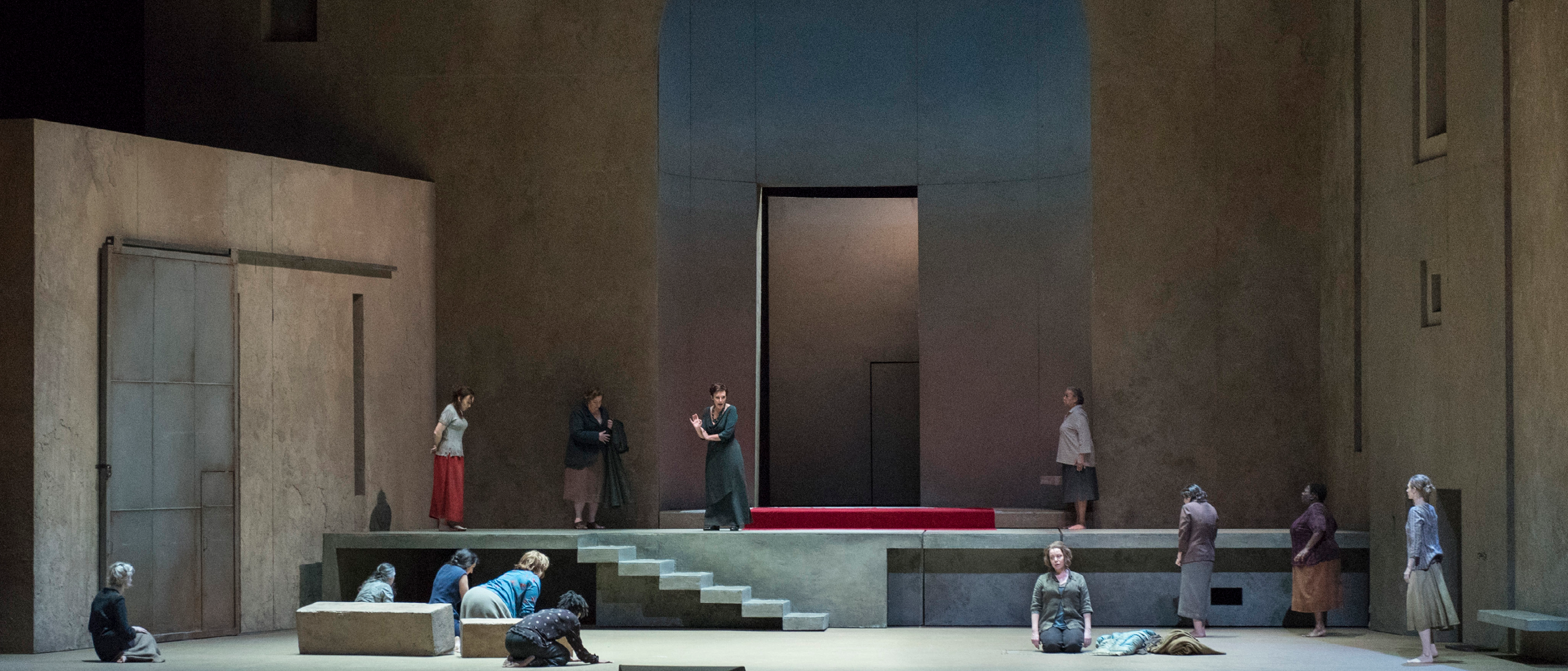
The Composition of Elektra
410 BCE
The Greek playwright Sophocles writes Electra, about a mythical antiheroine who pursued revenge for the murder of her father, King Agamemnon, at the hands of her mother, Clytemnestra. The topic is a popular one among ancient Greek tragedians: Sophocles’s contemporaries Aeschylus and Euripides will both write plays about Electra, and Sophocles himself will compose additional plays about her brother Orestes.
1864
Richard Strauss is born on June 11 in Munich. His father, Franz Joseph, is the principal French horn player in the Munich Court Orchestra. Richard’s musical talent is obvious from an early age: He begins piano lessons at age four, is composing music by the age of six, begins studying violin at age eight, and starts formal composition lessons at age 11.
1881
Strauss sets to music a chorus from Sophocles’s Electra. The resulting work for voice and orchestra is performed at his school.
1883
Strauss leaves university after only just year of study to concentrate on a career in music. He has already begun to make a name for himself as a composer, with premieres of several of his works (including a violin concerto and an orchestral serenade) taking place outside of his hometown of Munich.
1883
Strauss moves to Berlin, where he immerses himself in the wealth of artistic resources available in the Prussian capital.
1885
The conductor and pianist Hans von Bülow hires Strauss as an assistant. It is Strauss’s first real professional position, and Strauss later credits Bülow for teaching him “the art of interpretation.” Hereafter, Strauss’s reputation as a conductor and composer continues to grow, and he occupies a series of increasingly prestigious conducting posts.
1888
Strauss’s symphonic tone poem Don Juan premieres in Weimar, establishing him as one of the preeminent composers of the day and a leading proponent of musical modernism.
1900
While conducting in Paris, Strauss meets the young Austrian poet Hugo von Hofsmannsthal, who is interested in collaborating to create a ballet. Strauss is impressed with Hofmannsthal’s scenario but is too busy with existing projects to work with him at the time.
1903
Hofmannsthal writes the play Elektra, a free adaptation of Sophocles’s tragedy. It is staged by the director Max Reinhardt in Berlin, and Strauss attends a performance.
1905
Strauss’s opera Salome premieres in Dresden. Its lurid subject matter and sultry atmosphere are matched by Strauss’s shockingly inventive musical setting. The opera is soon performed at all of the major European opera houses to great critical acclaim. The composer Gustav Mahler calls it “decidedly one of the most important works of our day.”
1906
Strauss and Hofmannsthal agree to work together to create an opera based on Hofmannsthal’s Elektra. Following this first joint effort, they continue to collaborate on operatic projects until the poet’s untimely death in 1929.
1909
Elektra receives its premiere on January 25 at the Court Opera in Dresden. Its modern, emotionally fraught plot captivates the public, and it is soon a worldwide phenomenon.
1929
Hugo von Hofmannsthal suffers a fatal stroke and dies on July 15. Strauss is too distraught to attend the funeral, but he writes to Hofmannsthal’s widow: “This genius, this great poet, this sensitive collaborator, this kind friend, this unique talent! No musician ever found such a helper and supporter. No one will ever replace him for me or the world of music!”
1933
Although apolitical by nature, Strauss is compelled to accept an appointment by German Minister of Propaganda Joseph Goebbels to the presidency of the Reichsmusikkammer, the official organization of Hitler’s Third Reich that coordinated all facets of the music industry.
1935
Strauss is forced to resign from the Reichsmusikkammer owing to his defiant insistence on working with the Jewish librettist Stefan Zweig.
1948
Strauss composes four songs for voice and orchestra, later published as Vier Letzte Lieder (Four Last Songs). With their massive orchestral accompaniment, texts by Germany’s leading poets, and captivating melodies, the songs bring together the myriad compositional techniques Strauss has spent a lifetime perfecting.
1949
Strauss dies on September 8, having suffered from declining health for several years. At a memorial service in Munich, conductor Georg Solti leads the final trio from Strauss’s opera Der Rosenkavalier, a scene that reflects on memory, experience, and the inevitable passage of time.